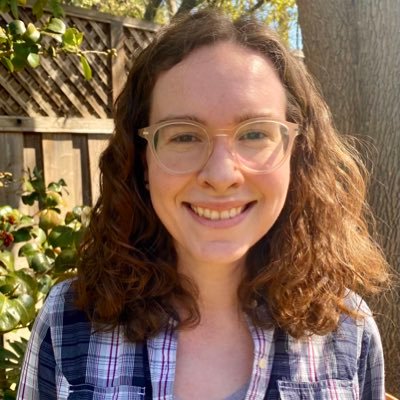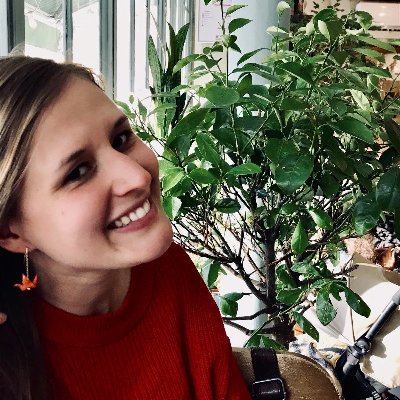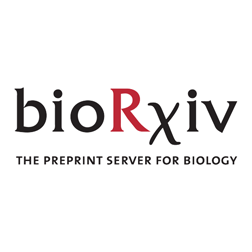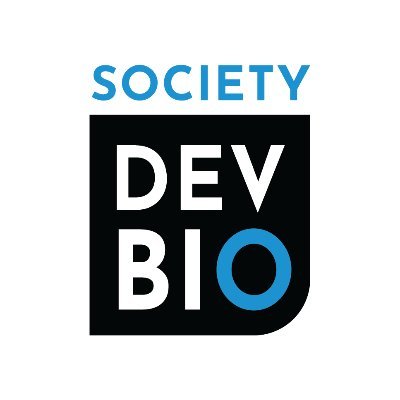
Grace Bower
@gracecbower
Followers
75
Following
41
Media
1
Statuses
55
PhD Candidate in the Kvon Lab @UCIBioSci. 👩🏻🔬🧬
California, USA
Joined January 2016
Was not prepared for the graphical abstract
Excited to share our latest manuscript in @CellCellPress. Here we discovered neuropeptides that specify and reprogram the division of labor in leafcutter ants!
16
286
2K
Our preprint describing the Range Extender element, which is required and sufficient for long-range enhancer activation at the Shh locus, is out in @Nature. https://t.co/qFrjw55BtX
How do enhancers work over distances that sometimes exceed megabases? Excited to share our work led by @gracecbower where we uncover a unique sequence signature globally associated with long-range enhancer-promoter interactions in developing limb buds: https://t.co/n0p7BdxSdq 1/
18
56
250
How do non-coding variants in enhancers cause human disease? Here, in my main PhD work with @evgenykvon, we uncover a surprising mechanism, with generalizable implications for human genomics. https://t.co/UHMAjxs6Qj n/
2
9
17
The first story of my PhD out now in final published form, including new untested variants (see below)!
Our preprint is out https://t.co/YOPKxzYenX In a new set of experiments, we screened a panel of rare and common variants from patients with Autism and identified variants in enhancers of OTX2 & Mir9-2 that reproducibly alter their activity in vivo! Huge congrats to @ewholling
0
6
16
Beyond happy to share the most exciting findings of my PhD research in the @stark_lab. 🤩 https://t.co/YUSJJ6ses0 Our genome-wide silencer screen revealed that silencers are different from your typical regulatory DNA element. Find out more below 👇 (1/9)
3
35
119
It was exciting to dig into all the new discoveries in long range gene regulation while writing this!
In this review, @gracecbower & I discuss recent evidence showing that, unlike canonical enhancers, long-range enhancers located hundreds of kb from their target genes rely on additional mechanisms to ensure robust gene activation during mammal development https://t.co/mRwr1qxKF9
0
0
6
Updated VISTA Enhancer Browser, 7 years in the making, out in @NAR_Open! >4,500 transgenic in vivo enhancer experiments for all your developmental biology, human variation and #evodevo needs. https://t.co/fE861VE3r7
#enhancers #embryos
https://t.co/QxQDzGzBlf
4
63
246
🚨Preprint alert🚨 Excited to share the #preprint version of our work @MundlosLab ! Curious about how a transposable element (TE) insertion can cause developmental phenotypes? 🧬🦠🐁 Check the 🧵 below and the full version on BiorXiv: https://t.co/C8Yijflrnf
biorxiv.org
Mammalian genomes are scattered with transposable elements (TEs). TEs are epigenetically silenced to prevent harmful effects caused by either global activation leading to genome instability or...
12
62
189
in case you're wondering how stable the 3D genome is
9
114
846
Beta-version of the new VISTA Enhancer Browser, 7 years in the making, with support for developmental stages, different species and variant comparison is finally online. Feedback is welcome! https://t.co/2y5HDCYaKD
#enhancers #embryos #evodevo
4
53
183
Beyond proud of the work that went into our latest story! A big shoutout to @evgenykvon for the incredible guidance.
How do enhancers work over distances that sometimes exceed megabases? Excited to share our work led by @gracecbower where we uncover a unique sequence signature globally associated with long-range enhancer-promoter interactions in developing limb buds: https://t.co/n0p7BdxSdq 1/
2
5
40
Our preprint characterizing mouse developmental Enhancer—Promoter interactions by @Czx17943830 is out today @NatureGenet
https://t.co/hFOtPCl4zV See also a complementary study on fly Enhancer—Promoter interactions from @Eileen_Furlong
https://t.co/MyU1Hhy5i6
How important is Enhancer—Promoter physical proximity for developmental gene activation? Happy to share our work led by postdoc Zhuoxin Chen @Czx17943830 where we systematically address this question in vivo. (1/n) https://t.co/Tj23A1WoRt
9
55
213
How to test the functional impact of noncoding variants in vivo? Happy to share our work led by @ewholling where we developed dual-enSERT, a new method that enables rapid, quantitative comparison of human enhancer variant activities in live mice. Check this Tweetorial for details
Much of human disease-linked variation maps to regulatory regions. Yet, our ability to test the effects of these noncoding variants remains limited. In our new @biorxiv preprint, we asked if we could begin to chip away at this bottleneck: https://t.co/lRXnsfgmsE 1/
5
16
49
I’m overwhelmed by the support from the #devbio and #zebrafish communities. This trip has been really special. I met some of my science heroes (@CagneyElayna, @SolnicaKrezelL, @clawedfeet & @chrmosimann) and talked to a lot of amazing people. Tanks everyone ☺️ #2023SDB
11
11
239
Lots of new insights into Enhancer Biology! Special thanks to @aburger2009 for suggesting this awesome topic for an SDB satellite symposium and to all #2023SDB crew (@Lab_VPrince, Marsha, Laura and Ida) for helping with the logistics.
0
1
5
The #2023SDB Meeting will also kick off with the Satellite Symposium ‘Outside of Exomes: Enhancers in Development and Congenital Disease’ organized by @aburger2009 @evgenykvon
https://t.co/hQmYINxJGj
#2023SDBenh
kvonlab.org
0
3
8
(1/n) Excited to share preprint by @ViraatGoel @mileshuseyin We develop Region-Capture Micro-C (RCMC) By focusing on specific regions, we generate the deepest 3D genome maps thus far We see coalescence of enhancer and promoters into “microcompartments” https://t.co/1Fsd6ixnK9
5
88
300
Insertion causes muscle to bone transformation by enhancer highjacking of ARGAP36! Super cool story led by @MeloUira @MPI_MolGen with Elisa Giorgio out now in @NatureComms
https://t.co/ol7tssWHTu
@UKSH_KI_HL @UniLuebeck @kieluni Great tweetorial below:
We are very happy to announce our latest work in @NatureComms, a great collaboration with @malte_spielmann and Elisa Giorgio. Here we show the importance of carefully analyzing non-coding DNA variants in #RareGeneticDiseases. @mundloslab @MPI_MolGen
0
4
20















